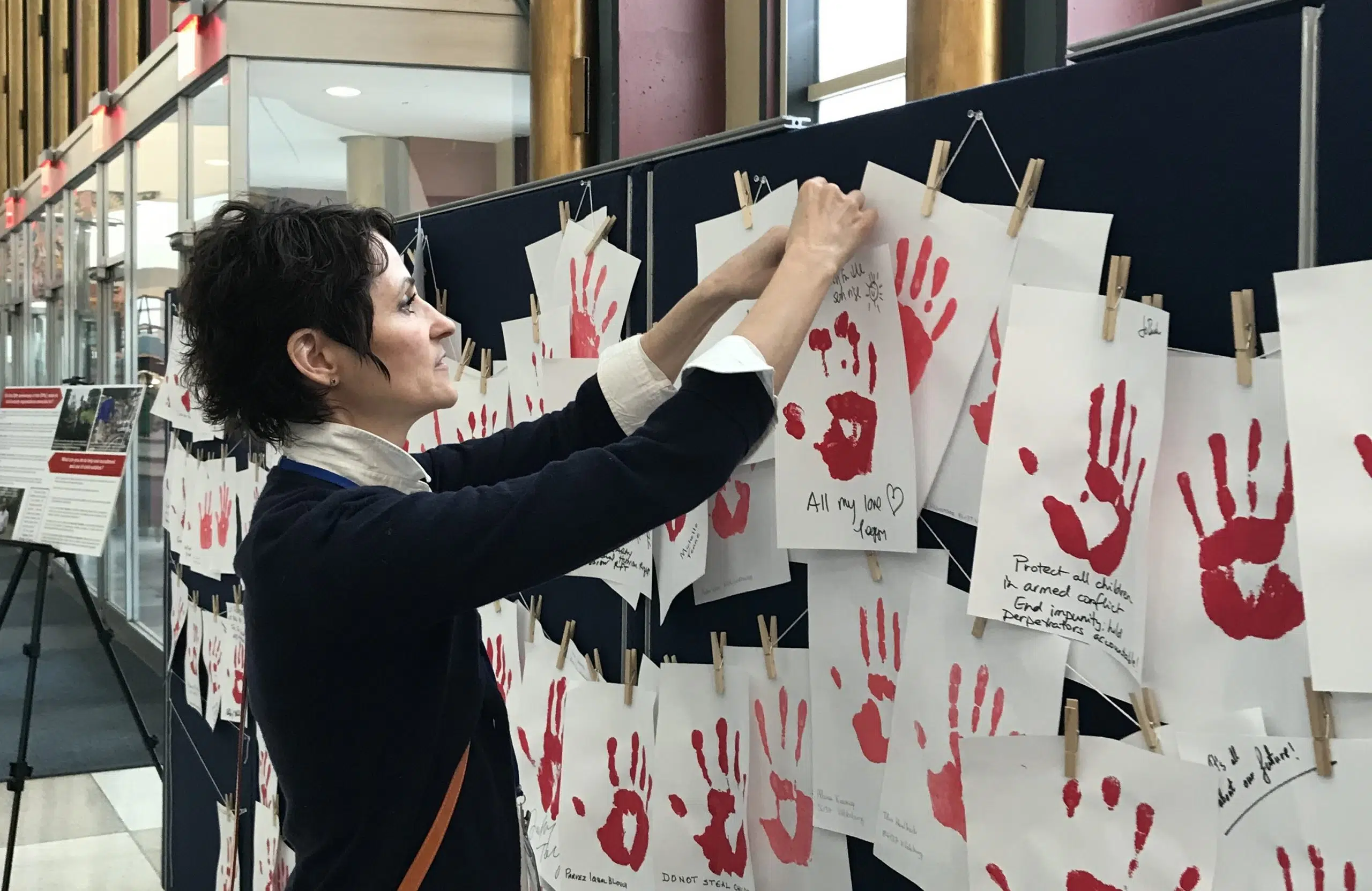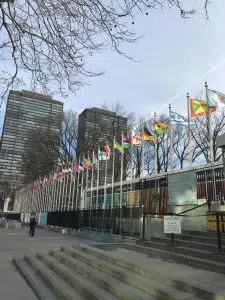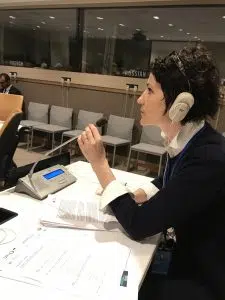An Adjunct Research Professor at Brescia University College has had the opportunity of a lifetime.
Her name is Peggy O’Neil, and she recently joined the International Federation for Home Economics (IFHE) at the United Nations in New York for a discussion centred around land rights for women in the southern, less developed world.
O’Neil spoke to XFM News about her experience.
THE JOURNEY
“Well, the journey started very early with a dream. I really wanted to do something,” said O’Neil. “I wanted to help. And I try to align my work and the groups that I joined to that purpose.”
According to her, the path to her eventual place at a UN discussion wasn’t so clear.
“I didn’t know how I was going to get there. I didn’t know when I was going to get there. But I knew I wanted to be on the highest sort of really important stage at the United Nations.”
O’Neil said that the smallest things can add up to the greatest opportunities.
“I became interested in looking at things that I was accessing in my individual home. So for example, when I invest I make sure that the fund companies have affiliations with principles for responsible investment,” she told XFM News. “So, seeking out how I could support the United Nations without being an official member.”
And it didn’t take long for someone to notice.
“Through that work, people started to notice things I was doing in housing, and I was invited to offer early work on housing. One of the things I thought was the most important to address in the world were women’s rights in the global south,” said O’Neil.
That’s when the IFHE contacted her with the opportunity to be a representative at the United Nations.
THE PURPOSE
O’Neil’s purpose was, and is, filled with compassion for people in unfair systems. It was a genuine care for those in less fortunate positions across the globe.
“[Women in the global south] don’t have land rights. So if their father passes away, or their husband passes away, or something happens, they have to leave the land,” said O’Neil.
Women’s land rights are a serious issue that most in the western world scarcely think about. In fact, according to The World Bank, women in almost half of the world’s countries are denied the right to equal treatment when it comes to land rights.
O’Neil went on to explain a bit more about the situation.
” What’s happening is, there is customary land that was governed by tribal or other traditional structures in which women had the opportunity to have cattle or sell eggs.”
#WomensLand and property rights are the key to economic development. RT if you agree! https://t.co/dBZjuh5Jka #WomenBizLaw pic.twitter.com/A7gIsPnYGF
— World Bank Cities (@WBG_Cities) February 27, 2020
She then explained that this is very far from actual land ownership. These women are able to build lives, homes, and livelihoods on this land, but the injustice comes into full swing when we take into account the actual rights they’re given.
“When so often something does happen to a father or husband, an illness, or unrest, they’re disrupted. They have to leave the land,” she said.
She went on to say that while the economic development of countries where this goes on is probably positive, bringing the other 50% of the population into the equation would speed things up significantly.
Fortunately, there are tangible solutions on the horizon
THE SOLUTION
“Measures need to be put in place for women to be accounted for,” said O’Neil. “More education, the opportunity for paid work, adequate housing, those types of things need to be put in place.”
When asked about a specific example as a good solution—Kerala, India, where more education for women has allowed significant economic growth—her response was a mixture of respect for the given example, and gratitude that it was the perfect segue into her next point.
“I think it’s a solution, but it can’t be a blanket solution,” she began. “We have to look at what’s happening in each specific area. We need to have the people that we’re trying to help have their voices present in the dialogue. ”
Representation and open dialogue, she said, is an extremely underappreciated part of the equation.
“That’s one of the things that isn’t happening now. The needs are not being represented from the people who are going to be using the things we’re trying to solve the problem with,” said O’Neil.
That’s where the Stand For Her Land initiative comes in.
We support #WomensLand rights because LAND is…
💪🏾Power
🌳Life
☮️Destiny
💧Resource
👩🏾🌾Major means of production
🆙Foundation for economies and development.Why do YOU #Stand4HerLand? https://t.co/PbMz0DAv75 #CLPA2019 @Landesa_Global @DrMhojam pic.twitter.com/EJhWGKWROe
— Stand for Her Land (@Stand4HerLand) November 24, 2019
The initiative is a concerted effort to bring change, and it’s one that O’Neil stalwartly supports. Stand For Her Land advocates for women’s land rights in undeveloped nations as a catalyst for change. Their website says that the positive effects of women being given access to the same land rights as men, on not only individual health and prosperity but that of whole communities and nations, is real, effective, and documented to work.
The initiative works by focusing on specific countries and communities that they can help. Their most current campaign is centred in Tanzania, where they hope to translate progressive laws that have already been passed into real action.
THE GLOBAL COMMUNITY
One of the most underestimated parts of the equation, according to O’Neil, is the average person. She said that there are simple ways that we can make a difference across the ocean.
“I think education at home as well as constantly seeking out, ‘How can every single thing that I do somehow achieve a greater purpose so that it’s an investment, not a transaction?’,” said O’Neil.
It can also be as simple as watching what we buy. O’Neil said that a great starting point is to think about your purchases. Buy fair trade, and think of where your commodities and food are coming from.
She also said that looking for opportunities to support policy that can change peoples’ lives for the better is important.
One of her strongest messages is that it can be anyone.
“One thing that I realized is, when we hear about our heroes and people in the news and all these fantastic things, they’re fantastic. And you think, ‘How could I ever do something like that,’ but they didn’t start there, either,” she said. “Small cumulative actions really do add up.”
And finally, she closed with a few words of wisdom.
“I haven’t gotten everything I ever wanted. I failed exams, I didn’t get into programs I wanted, but I did not give up. I got more of what I wanted and than I didn’t [get] because I didn’t let a single moment define me,” O’Neil said, with a smile on her face.
“For people trying to make something happen, never ever give up. If someone told childhood Peggy, ‘Hey, this is going to be your life,’ my mind couldn’t even have dreamed those dreams at that time. So the dreams grew as I did, so just keep going and you’ll get there.”







